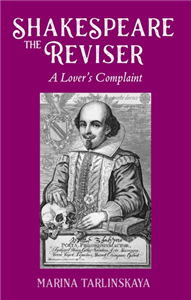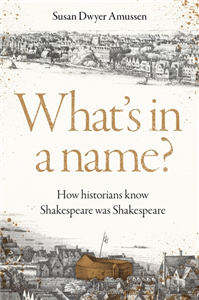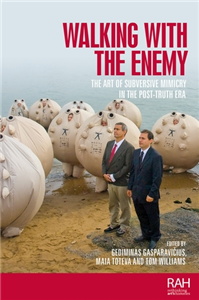Your Search Results
-
Promoted ContentLiterature & Literary StudiesDecember 2005
Graham Swift
by Daniel Lea, Susan Williams
This book offers an accessible critical introduction to the work of Graham Swift, one of Britain's most significant contemporary authors. Through detailed readings of his novels and short stories from 'The Sweet Shop Owner' (1980) to 'The Light of Day' (2003), Daniel Lea lucidly addresses the key themes of history, loss, masculinity and ethical redemption, to present a fresh approach to Swift. This study proposes that one of the side-effects of modernity has been the destruction of traditional pathways of self and collective belief, leading to a loss of understanding between individuals about their duties to each other and to society. Swift's writing returns repeatedly to the question of what we can believe in when all the established markers of identity - family, community, gender, profession, history - have become destabilised. Lea suggests that Swift increasingly moves towards a notion of redemption through a lived ethical practice as the only means of finding solace in a world lacking a central symbolic authority. ;
-
Promoted ContentLiterature & Literary StudiesApril 2020
Interweaving myths in Shakespeare and his contemporaries
by Janice Valls-Russell, Agnès Lafont, Charlotte Coffin
This volume proposes new insights into the uses of classical mythology by Shakespeare and his contemporaries, focusing on interweaving processes in early modern appropriations of myth. Its 11 essays show how early modern writing intertwines diverse myths and plays with variant versions of individual myths that derive from multiple classical sources, as well as medieval, Tudor and early modern retellings and translations. Works discussed include poems and plays by William Shakespeare, Christopher Marlowe and others. Essays concentrate on specific plays including The Merchant of Venice and Dido Queen of Carthage, tracing interactions between myths, chronicles, the Bible and contemporary genres. Mythological figures are considered to demonstrate how the weaving together of sources deconstructs gendered representations. New meanings emerge from these readings, which open up methodological perspectives on multi-textuality, artistic appropriation and cultural hybridity.
-
 Trusted Partner
The ArtsJanuary 2019
Trusted Partner
The ArtsJanuary 2019French cinema in the 1970s
The echoes of May
by Alison Smith
This book re-examines French cinema of the 1970s. It focuses on the debates which shook French cinema, and the calls for film-makers to rethink their manner of filming, subject matter and ideals in the immediate aftermath of the student revolution of May 1968. Alison Smith examines the effect of this re-thinking across the spectrum of French production, the rise of new genres and re-formulation of older ones. Chapters investigate political thrillers, historical films, new naturalism and Utopian fantasies, dealing with a wide variety of films. A particular concern is the extent to which film-makers' ideas and intentions are contained in or contradicted by their finished work, and the gradual change in these ideas over the decade. The final chapter is a detailed study of two directors who were deeply involved in the debates and events of the 70s, William Klein and Alain Tanner, here taken as exemplary spokesmen for those changing debates as their echoes reached the cinema.
-
 Trusted Partner
Literature & Literary StudiesJanuary 2026
Trusted Partner
Literature & Literary StudiesJanuary 2026Shakespeare, memory, and modern Irish literature
by Nicholas Taylor-Collins
-
 Trusted Partner
The ArtsMarch 2013
Trusted Partner
The ArtsMarch 2013Space and being in contemporary French cinema
by James S. Williams
This book brings together for the first time five French directors who have established themselves as among the most exciting and significant working today: Bruno Dumont, Robert Guédiguian, Laurent Cantet, Abdellatif Kechiche, and Claire Denis. Whatever their chosen habitats or shifting terrains, each of these highly distinctive auteurs has developed unique strategies of representation and framing that reflect a profound investment in the geophysical world. The book proposes that we think about cinematographic space in its many different forms simultaneously (screenspace, landscape, narrative space, soundscape, spectatorial space). Through a series of close and original readings of selected films, it posits a new 'space of the cinematic subject'. Accessible and wide-ranging, this volume opens up new areas of critical enquiry in the expanding interdisciplinary field of space studies. It will be of immediate interest to students and researchers working not only in film studies and film philosophy, but also in French/Francophone studies, postcolonial studies, gender and cultural studies. Listen to James S. Williams speaking about his book http://bit.ly/13xCGZN. (Copy and paste the link into your browser) ;
-
 Trusted Partner
The ArtsJune 2021
Trusted Partner
The ArtsJune 2021Contemporary French cinema
An introduction (revised edition)
by Guy Austin
Contemporary French cinema is an essential introduction to popular French film of the last 35 years. It charts recent developments in all genres of French cinema with analyses of over 120 movies, from Les Valseuses to Caché. Reflecting the diversity of French film production since the New Wave, this clear and perceptive study includes chapters on the heritage film, the thriller and the war movie, alongside the 'cinéma du look', representations of sexuality, comedies, the work of women film makers and le jeune cinéma. Each chapter introduces the public reception and critical debates surrounding a given genre, interwoven with detailed accounts of relevant films. Confirmed as a major contribution to both Film Studies and French Studies, this book is a fascinating volume for students and fans of French film alike.
-
 Trusted Partner
The ArtsJanuary 2019
Trusted Partner
The ArtsJanuary 2019Contemporary French cinema
An introduction (revised edition)
by Guy Austin
Contemporary French cinema is an essential introduction to popular French film of the last 35 years. It charts recent developments in all genres of French cinema with analyses of over 120 movies, from Les Valseuses to Caché. Reflecting the diversity of French film production since the New Wave, this clear and perceptive study includes chapters on the heritage film, the thriller and the war movie, alongside the 'cinéma du look', representations of sexuality, comedies, the work of women film makers and le jeune cinéma. Each chapter introduces the public reception and critical debates surrounding a given genre, interwoven with detailed accounts of relevant films. Confirmed as a major contribution to both Film Studies and French Studies, this book is a fascinating volume for students and fans of French film alike.
-
 Trusted Partner
Humanities & Social SciencesJuly 2021
Trusted Partner
Humanities & Social SciencesJuly 2021Post-everything
An intellectual history of post-concepts
by Herman Paul, Adriaan van Veldhuizen
Postmodern, postcolonial and post-truth are broadly used terms. But where do they come from? When and why did the habit of interpreting the world in post-terms emerge? And who exactly were the 'post boys' responsible for this? Post-everything examines why post-Christian, post-industrial and post-bourgeois were terms that resonated, not only among academics, but also in the popular press. It delves into the historical roots of postmodern and poststructuralist, while also subjecting more recent post-constructions (posthumanist, postfeminist) to critical scrutiny. This study is the first to offer a comprehensive history of post-concepts. In tracing how these concepts found their way into a broad range of genres and disciplines, Post-everything contributes to a rapprochement between the history of the humanities and the history of the social sciences.
-
 Trusted Partner
The ArtsApril 2019
Trusted Partner
The ArtsApril 2019Daniel Calparsoro
by Nuria Triana-Toribio, Ann Davies, Andy Willis
Daniel Calparsoro, a director who has made a crucial contribution to contemporary Spanish and Basque cinema, has provoked strong reactions from the critics. Reductively dismissed as a works of crude violence by those lamenting a 'lost golden age' of Spanish filmmaking, Calparsoro's films in fact reveal a more complex interaction with trends and traditions in both Spanish and Hollywood cinema. This book is the first full-length study of the director's work, from his early social-realist films set in the Basque Country to his later forays into the genres of the war and horror. It offers an in-depth film-by-film analysis while simultaneously exploring the director's position in the contemporary Spanish context, the tension between directors and critics and the question of national cinema in an area - the Basque Country - of heightened national and regional sensitivities.
-
 Trusted Partner
The ArtsFebruary 2009
Trusted Partner
The ArtsFebruary 2009Daniel Calparsoro
by Ann Davies, Nuria Triana-Toribio, Andy Willis
Daniel Calparsoro, a director who has provided a crucial contribution to the contemporary scene in Spanish and Basque cinema, has provoked strong reactions from the critics. Reductively dismissed as a purveyor of crude violence by those critics lamenting a 'lost golden age' of Spanish filmmaking, Calparsoro's films reveal in fact a more complex interaction with trends and traditions in both Spanish and Hollywood cinema. This book is the first full-length study of the director's work, from his early social realist films set in the Basque Country to his later forays into the genres of the war and horror film. It offers an in-depth film-by-film analysis, while simultaneously exploring the function of the director in the contemporary Spanish context, the tension between directors and critics, and the question of national cinema in an area - the Basque Country - of heightened national and regional sensitivities. ;
-
 Trusted Partner
Literature & Literary StudiesFebruary 2022
Trusted Partner
Literature & Literary StudiesFebruary 2022Shakespeare and the supernatural
by Victoria Bladen, Yan Brailowsky, Gayle Allan, Jacquelyn Bessell, Victoria Bladen, Yan Brailowsky, William C. Carroll, Bernadette Cochrane, Alexa Huang, Laurie Johnson, Pierre Kapitaniak, Imke Lichterfeld, Florence March, Maddalena Pennacchia, Chelsea Philips, Yukari Yoshihara, Christopher Wortham
-
 Trusted Partner
Literature & Literary StudiesSeptember 2025
Trusted Partner
Literature & Literary StudiesSeptember 2025Shakespeare the Reviser
A Lover's Complaint
by Marina Tarlinskaya
The project researches the difference between a revision vs. a rewriting. The book explores the English poems and plays of the Early New English period, from the sixteenth to the beginning of seventeenth century, with over 50 entries examined. The main material is the poem A Lover's Complaint; the play Double Falsehood by Lewis Theobald; the revised and rewritten post-Restoration plays such as Richard II (revised by Lewis Theobald), and The Fatal Secret (rewritten Webster's The Duchess of Malfi) by Lewis Theobald. An example of authorial revision is Sonnets 2 and 138.
-
 Trusted Partner
Trusted Partner
-
 Trusted Partner
The ArtsSeptember 2024
Trusted Partner
The ArtsSeptember 2024The renewal of post-war Manchester
Planning, architecture and the state
by Richard Brook
A compelling account of the project to transform post-war Manchester, revealing the clash between utopian vision and compromised reality. Urban renewal in Britain was thrilling in its vision, yet partial and incomplete in its implementation. For the first time, this deep study of a renewal city reveals the complex networks of actors behind physical change and stagnation in post-war Britain. Using the nested scales of region, city and case-study sites, the book explores the relationships between Whitehall legislation, its interpretation by local government planning officers and the on-the-ground impact through urban architectural projects. Each chapter highlights the connections between policy goals, global narratives and the design and construction of cities. The Cold War, decolonialisation, rising consumerism and the oil crisis all feature in a richly illustrated account of architecture and planning in post-war Manchester.
-
 Trusted Partner
Literature & Literary StudiesJuly 2005
Trusted Partner
Literature & Literary StudiesJuly 2005J.G. Ballard
by Andrjez Gasiorek, Daniel Lea
This book offers a comprehensive account of the work of J.G. Ballard, regarded by several critics as one of the most significant fiction writers of recent times. Ballard's early science-fiction writing earned him plaudits as one of the most innovative and individual voices in the field, but his development as a writer has taken him far beyond the confines of any single genre. This book traces Ballard's career from his early science-fiction short stories and novels to his most recent work, particularly his timely reflections on the role of violence in contemporary social life. It argues that Ballard's writing is characterised by a distinctive vision of the post-war world and its possible futures, and suggests that his far-reaching analyses of the present age make him one of the indispensable commentators of our time. ;
-
 Trusted Partner
Literature & Literary StudiesMarch 2026
Trusted Partner
Literature & Literary StudiesMarch 2026What's in a name?
How historians know Shakespeare was Shakespeare
by Susan Dwyer Amussen
A compelling tour of Shakespeare's England that makes a powerful contribution to the 'authorship question'. How do we know Shakespeare was Shakespeare? Could a glover's son who left school at fifteen really be the author behind such masterpieces as Hamlet, King Lear and The Tempest? Yes! says historian Susan Amussen. She transports readers back to early modern England, to travel the path that carried William Shakespeare from humble origins in Stratford to literary greatness on the London stage. This was a society undergoing rapid change. Grammar schools made education in Latin and Greek available to commoners, while touring players brought the latest dramatic productions to the masses. And in London, a metropolis filled with European visitors, ordinary people had the opportunity to see courtly life up close. No serious historian doubts that Shakespeare was the author of the plays that bear his name. Susan Amussen shares what they know: that Shakespeare's England was a complex and cosmopolitan place, with everything a talented young playwright needed to develop his craft and furnish his imagination.
-
 Trusted Partner
July 2023
Trusted Partner
July 2023Donnie & Jan – Ziemlich beste Brüder. Angriff der Gangster-Kühe
Witziger Comicroman für alle ab 9. Von der Bestsellerautorin von „Hugo“ und „Collins geheimer Channel“
by Sabine Zett, Daniel Stieglitz
Witziger Comicroman für alle ab 9. Von der Bestsellerautorin von „Hugo“ und „Collins geheimer Channel“; mit urkomischen Bildern von Daniel Stieglitz. „Boah, Leute, seit mein Vater die Idee hatte, dass wir zu seiner Freundin aufs Land ziehen, dreht er voll durch. Will nur noch frische Luft atmen, im Garten statt am Schreibtisch arbeiten und entschleunigen. Keine Ahnung, was das heißen soll. Und dann dieser Jan, der Sohn von Papas Freundin. Ein echtes Landei … Mit dem soll ich nicht nur in einem Bauernhaus wohnen, sondern auch noch jeden Tag in irgendeine Dorfschule gehen. No way - ohne mich! Wir sind ja keine Brüder! Zum Glück hat der genauso wenig Bock auf mich wie ich auf ihn. Deswegen haben wir uns gleich einen Plan überlegt, damit ich möglichst schnell mein altes Leben in der City zurückbekomme. Bye, bye, Landleben!“ Donnie kann es nicht fassen, als sein Vater beschließt, mit ihm aufs Land zu ziehen. Keine Privatschule mehr, keine Limousine und nicht mal Haushälterin Ursula kommt mit. Und WLAN gibt es nur im Hühnerstall! Wie soll sich Donnie da bloß zurechtfinden? Jan, der Sohn von Papas Freundin, freut sich genauso wenig über das Patchwork-Experiment und möchte Donnie möglichst schnell wieder loswerden. Also raufen sich die beiden zusammen und schmieden einen wasserdichten Plan, damit das Experiment „Landleben mit Bruder“ ganz schnell ein Ende findet. „Donnie & Jan. Ziemlich beste Brüder“ erzählt vom turbulenten Alltag einer Patchwork-Familie und zwei ziemlich ungleichen Stiefbrüdern. Voll witziger Ideen von der mehrfach ausgezeichneten Erfolgsautorin Sabine Zett und rasend komisch illustriert von Karikaturist Daniel Stieglitz. Für Kinder ab 9 und alle, die Spaß an lustigen Büchern haben. Kerstin Gier: „Ich durfte das Buch gestern schon mit den Ferienkindern testen, und die hatten unheimlich viel Spaß mit den ziemlich besten Brüdern. Und ich auch!“ ** Die Arena-Fun-Bücher ** Altersübergreifende Geschichten Für alle von 8-11 Jahren Ansprechendes Text-Bild-Leseerlebnis Kurze Kapitel, überschaubare Textmenge Fördert die Lesebegeisterung und Lesekompetenz Beschert schnell Erfolgserlebnisse
-
 Trusted Partner
March 2024
Trusted Partner
March 2024Donnie & Jan – Ziemlich beste Brüder (2). Party-Hotspot Hühnerstall
Witziger Comicroman für alle ab 9. Von der Bestsellerautorin von „Hugo“ und „Collins geheimer Channel“
by Sabine Zett, Daniel Stieglitz
Witziger Comicroman für alle ab 9. Von der Bestsellerautorin von „Hugo“ und „Collins geheimer Channel“; mit urkomischen Bildern von Daniel Stieglitz. „Boah Leute, wie lame ist das denn: Unsere Lehrerin will nächste Woche eine Mathearbeit schreiben. Am Tag nach unserer Party! Als wäre es nicht schon schlimm genug, dass ich mit meinem Stiefbruder Jan zusammen feiern soll. Der ist zwar ganz nett, aber wie man eine fette Party auf die Beine stellt, davon hat er echt keine Ahnung. Alles, was der im Kopf hat, sind Muffins. Dabei gibt es doch noch so viel mehr zu organisieren: eine coole Location, Unterhaltungsprogramm mit einem Promi oder einer YouTuberin, die Deko und die Gästeliste. Natürlich habe ich unsere ganze Klassenstufe eingeladen! Wie sich die Dorfkids wohl mit meinen alten Kumpels aus der City verstehen?!“ Stadtkind Donnie hat einige äußerst turbulente Wochen Landleben mit seiner neuen Patchworkfamilie hinter sich. Doch inzwischen hat er sich einigermaßen auf dem Dorf eingelebt und versteht sich auch ganz gut mit seinem Stiefbruder Jan. Die beiden planen sogar eine gemeinsame Party. Doch da zeigt sich: Noch immer trennen die beiden Welten. Jan will in der Scheune feiern, Donnie auf einer Kartbahn. Jan möchte selbstgebackenen Kuchen, Donnie unbedingt ein Sushi-Buffett. Und wer darf über die Musik bestimmen? In nichts werden sie sich einig … Wenn das so weitergeht, wird die ganze Party ins Wasser fallen! Ob Donnie und Jan es schaffen, sich zusammenzuraufen? „Donnie & Jan. Ziemlich beste Brüder“ erzählt vom turbulenten Alltag einer Patchwork-Familie und zwei ziemlich ungleichen Stiefbrüdern. Voll witziger Ideen von der mehrfach ausgezeichneten Erfolgsautorin Sabine Zett und rasend komisch illustriert von Karikaturist Daniel Stieglitz. Für Kinder ab 9 und alle, die Spaß an lustigen Büchern haben. ** Die Arena-Fun-Bücher ** Altersübergreifende Geschichten Für alle von 8-11 Jahren Ansprechendes Text-Bild-Leseerlebnis Kurze Kapitel, überschaubare Textmenge Fördert die Lesebegeisterung und Lesekompetenz Beschert schnell Erfolgserlebnisse
-
 Trusted Partner
Literature & Literary StudiesApril 2023
Trusted Partner
Literature & Literary StudiesApril 2023Charles Dickens and Georgina Hogarth
A curious and enduring relationship
by Christine Skelton
Charles Dickens called his sister-in-law Georgina Hogarth his 'best and truest friend'. Georgina saw Dickens as much more than a friend. They lived together for twenty-eight years, during which time their relationship constantly changed. The sister of his wife Catherine, the sharp and witty Georgina moved into the Dickens home aged fifteen. What began as a father-daughter relationship blossomed into a genuine rapport, but their easy relations were fractured when Dickens had a mid-life crisis and determined to rid himself of Catherine. Georgina's refusal to leave Dickens and his desire for her to remain in his household led to rumours of an affair and even illegitimate children. He left her the equivalent of almost £1 million and all his personal papers in his will. Georgina's commitment to Dickens was unwavering but it is far from clear what he did to deserve such loyalty. There were several occasions when he misused her in order to protect his public reputation. Why did Georgina betray her once much-loved sister? Why did she fall out with her family and risk her reputation in order to stay with Dickens? And why did the Dickenses' daughter Katey say it was 'the greatest mistake ever' to invite a sister-in-law to live with a family?
-
 Trusted Partner
The ArtsAugust 2026
Trusted Partner
The ArtsAugust 2026Walking with the enemy
The art of subversive mimicry in the post-truth era
by Gediminas Gasparavicius, Maia Toteva, Tom Williams
This book is about artists and activists who have embraced mimicry as a subversive tactic. Bringing together the contributions of seventeen writers, it addresses the ways in which artists have responded to power and ideology by imitating its outward forms. These contributors address in particular the current age of fantasy and political deception, and they consider the work of artists who have reacted by using dissimulation and make-believe themselves. Chapters include discussions of mimicry in reference to a number developments and debates: the post-truth era, the neoliberal consensus, the politics of race and gender, online subcultures, and the rise of the new right.



























